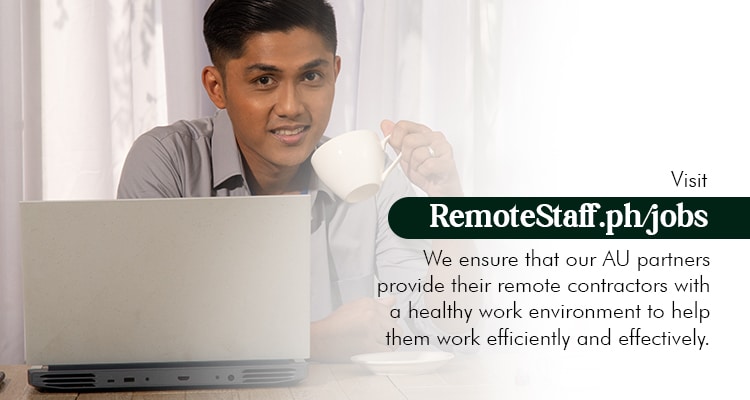It’s easy to see why many workers are following hustle culture. Hustle culture promises that as long as you work hard and are determined enough, you can succeed in pursuing your career goals. And social media is filled with various “success stories” from influencers who swear by it.
Unfortunately, from what we’ve seen in our previous discussions, this mindset promotes a toxic work culture. Because of this, many workers have stopped following hustle culture or leaving bosses who follow it. Such was the case with Twitter when Elon Musk took over the company.
Among those who fell for the allure of following hustle culture is me. I used to believe this mindset would help me achieve success and purpose in life. So if you’re curious about what it’s like following hustle culture, here’s an example.

When Did I Start Following Hustle Culture?
I started following hustle culture at the tail-end of college. College had been a wonderful experience, and the thought of it ending and beginning a new chapter of my life scared me.
Although my parents didn’t pressure me to get a job as soon as possible, I still felt I should get one after graduation.
Part of this is because it’s customary in Filipino families for the eldest to help support their families. And partly because I felt I was lagging behind my batchmates, who got jobs as soon as they graduated.
I constantly felt anxious as the weeks turned into months, and I still didn’t have a job. The feeling of being useless was constant, and I became almost desperate to get one.
When I did, I was so happy and proud. I didn’t care that it paid little or that the commute was atrocious. The only thing that mattered to me was that I was working and earning.
And then, the pandemic happened.

Landing My First Semi-Stable Job.
I remained jobless for two years, despite my attempts to apply to whatever opportunity I encountered. During these two years, I had trouble sleeping as I kept worrying about my future. I thought that without a job, I was useless.
So I promised myself that once I got a job, I’ll do everything to keep it. Thanks to a friend, I found a job opportunity as a freelance writer.
I was only required to write one article each day. Yet I always go beyond it so I can finish as many of my assignments as quickly as possible. It felt good at first, being able to start working after almost two years of the opposite.
However, my enthusiasm quickly turned to obsession as I kept working even during my rest days. I did this because this would make my work much more manageable, as I already did parts of it beforehand.
Yet, despite finally having a job, I still felt this was inadequate. This could be because it’s just a freelance job; and not a “real” eight-hour one. And if you’re following hustle culture, that’s not enough.

Starting My Full-time Job.
During my sixth month working on my freelance work, my friend referred me to Remote Staff. The offer was supposed to be hers, but since she already has commitments, she referred me instead.
So I sent my resume, passed the interview, and got accepted. Finally I thought, I’m not useless anymore. Now I won’t feel that I’m lagging behind when conversing with my friends regarding our careers.
I was determined to put my best foot forward at my first-ever full-time job. Initially, I was producing output by the day. And I was even capable of finishing one article halfway through my shift. I kept pushing myself to my limits, so my boss wouldn’t think I was slacking.
However, if you’ve read my previous articles about hustle culture, you know that this pace is neither healthy nor sustainable. Soon, I started experiencing signs of burnout. My productivity plummeted, and I constantly felt tired, even outside work.
It was also during this time that I had to quit my freelance job. I judged I could handle doing both at the same time. Turns out, I was wrong. I couldn’t work as well on my freelance job as on my full-time one, so I quit the former.

Detaching Myself From Hustle Culture.
Upon realizing that I was suffering from burnout, I began to slow down and work at a more comfortable pace. I’m still accomplishing one article per day, but now I’m working slower to ensure better quality.
I also began to actually rest during my days off to regain my strength for work again. And I have also started to give more time to my hobbies and even discovered new ones.
That said, I wouldn’t say that I’ve stopped following hustle culture completely. Old habits die hard, and I still slip back into overworking sometimes. Finding a balance between work and my private life is still challenging, but I’m slowly getting there.

Hustling Isn’t the Way to Go.
Hustle culture is an alluring work mindset for many in the Philippines due to its promised rewards and promotions on social media.
Many, including myself, used to subscribe to it to try and succeed in our careers. But some of us have eased up on following it due to its adverse side effects on our health and relationships.
If you’re looking for a workplace that promotes a healthy work mindset, Remote Staff is here for you. We ensure that our AU partners provide their remote contractors with a healthy work environment to help them work efficiently and effectively.
Head to our jobs list to see the various online jobs you can apply to. Good luck and take care!

